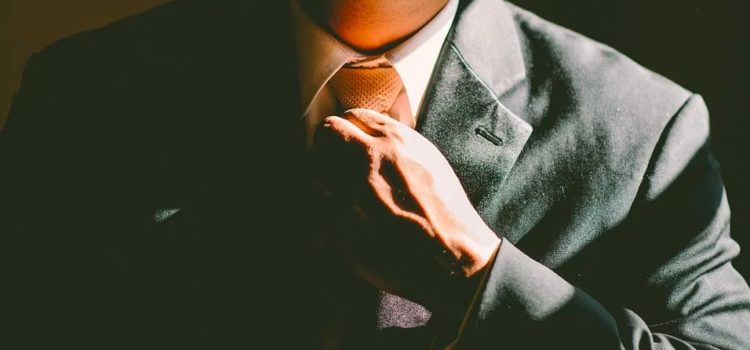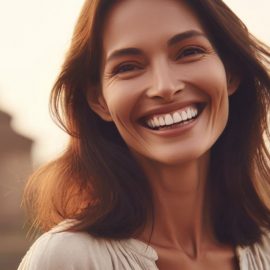

This article is an excerpt from the Shortform book guide to "Talking to Strangers" by Malcolm Gladwell. Shortform has the world's best summaries and analyses of books you should be reading.
Like this article? Sign up for a free trial here .
Who is Harry Markopolos? How was he able to discover Bernie Madoff’s crimes before everyone else? And why did it take so long for everyone else to realize them?
Harry Markopolos is a financial expert who’s deeply skeptical of large organizations, and of people in general. He discovered Bernie Madoff’s Ponzi scheme. He has a very low threshold for doubt. Consequently, his trigger point is extremely sensitive.
We’ll cover how Harry Markopolos knew something was wrong with Madoff’s trading strategies and why Markopolos failed to get anyone’s attention.
Bernie Madoff and Harry Markopolos
In the 1900’s and early 2000’s, Bernie Madoff was a well-known name within the financial industry. He was successful, wealthy, imperious, and reclusive—the kind of mysterious figure that draws attention.
In 2003, he drew the attention of Nat Simon and the executives at Renaissance Technologies. The firm looked into Madoff’s trading strategies and decided that something wasn’t quite right. They held an internal investigation and became even more skeptical of how Madoff was making money. But did Renaissance Technologies cut ties with Madoff completely? No. They only cut their stake in half. They didn’t have enough doubts to write him off completely.
Five years later, Madoff turned himself over to the authorities. He was exposed as the perpetrator of the biggest Ponzi scheme in history. Over the course of those five years, several journalists, investigators, and bankers had suspicions about the validity of Madoff’s business (just like Nat Simon had), but no one came to the conclusion that he was a criminal. Everyone in the financial industry defaulted to truth and assumed that he couldn’t be a fraud—everyone except Harry Markopolos.
Harry Markopolos
Harry Markopolos first heard of Bernie Madoff in the late 1980’s. He worked at a hedge fund and was trying to copy Madoff’s trading strategy. But he couldn’t figure out how Madoff was coming up with his figures. So he called some contacts he knew in the financial industry. No one knew where or how Madoff was doing his business. Markopolos was immediately triggered. He knew that Madoff’s business was illegitimate.
Markopolos went through the exact same process that Nat Simon and Renaissance Technologies would go through a few years later. But instead of defaulting to truth, Markopolos immediately saw through Madoff’s dishonesty and the incompetent regulation of the financial market.
Harry Markopolos went to the SEC with what he believed to be a fool-proof argument against Madoff in 2000, 2001, 2005, 2007, and 2008. If they had acted on his tips and conducted a thorough enough investigation to reach the trigger point, Madoff could have been stopped with only $7 billion, as opposed to the $50 billion he had stolen by 2009.
Technically speaking, the truth-default theory is to blame for allowing Madoff to get away with fraud for all those years. So is it dangerous that people naturally default to truth? Remember, the trade-off for enhanced lie detection skills is often effective communication and social skills. Here’s how this materialized in this case:
In 2002, upon realizing the magnitude of Bernie Madoff’s empire, Harry Markopolos began to fear for his life. Very powerful people had personal interests in keeping Madoff in business, and Markopolos had been publicly criticizing Madoff’s business for years. He felt he couldn’t be safe until the Ponzi scheme was revealed. So he made a plan to approach Attorney General Eliot Spitzer.
Harry Markopolos was so paranoid that he made an elaborate plan to hide his identity at one of Spitzer’s events. He put his documented evidence against Madoff in a series of large envelopes and handed them to another woman in the hopes of getting them to Spitzer. But the plan failed—the documents never reached the attorney general and another seven years passed before Madoff was exposed.
Harry Markopolos’s natural skepticism was the reason he was able to catch Madoff in the crime, but it was also the reason he was unable to effectively communicate his evidence in a way that made a difference in the case. That’s the consequence of not having a default to truth. Without a natural sense of trust, you cannot have effective social encounters.

———End of Preview———
Like what you just read? Read the rest of the world's best book summary and analysis of Malcolm Gladwell's "Talking to Strangers" at Shortform .
Here's what you'll find in our full Talking to Strangers summary :
- Why we don't understand strangers
- How to talk to strangers in a cautious way so you don't get fooled
- How Hitler deceived so many world leaders






